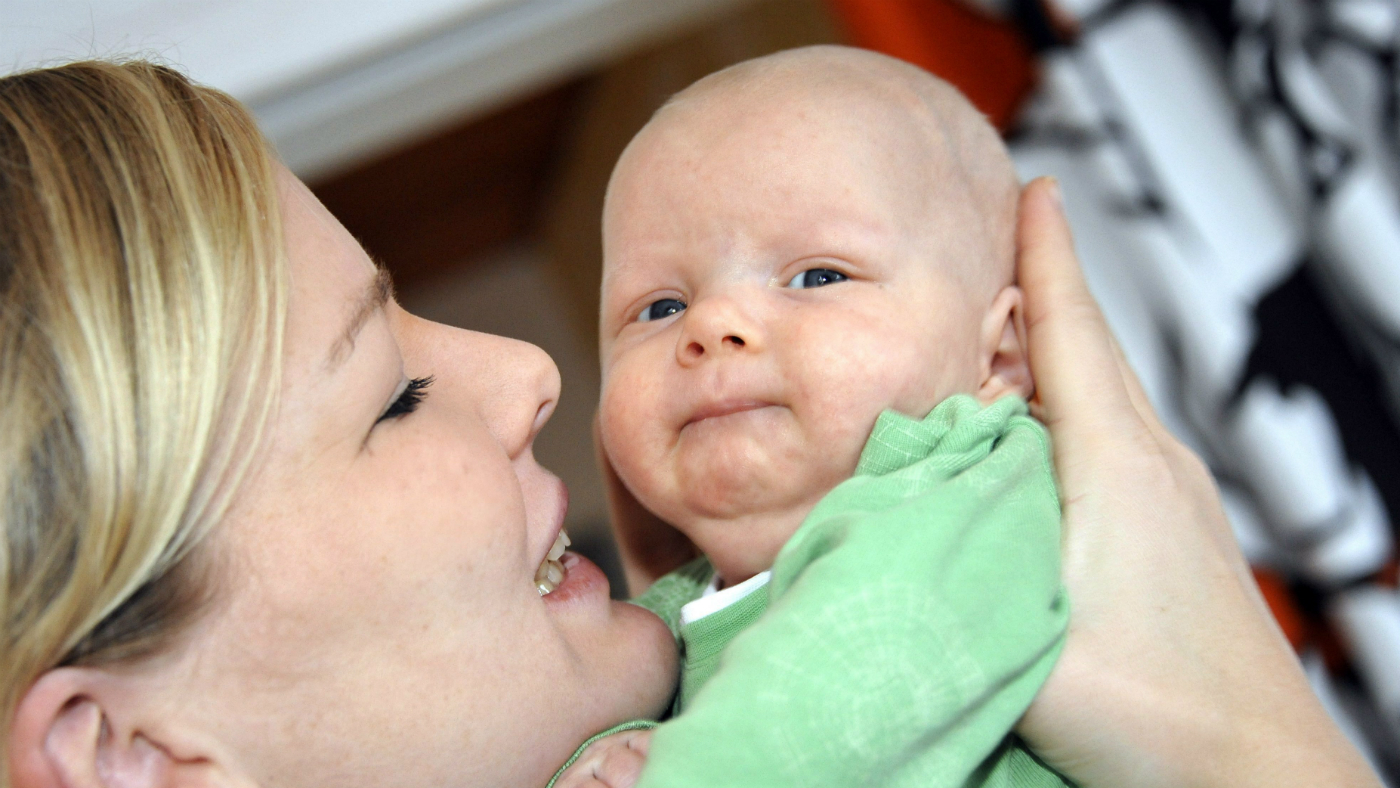Finland’s baby shortage threatens welfare state
Birth rate at lowest level in nearly 150 years, well below the European average

A free daily email with the biggest news stories of the day – and the best features from TheWeek.com
You are now subscribed
Your newsletter sign-up was successful
The Finnish government is increasingly concerned about the country’s falling birth rate, which is at its lowest for nearly 150 years.
The number of babies being born has fallen steadily over the last six years and is now considerably lower than neighbouring Sweden and Norway and well below the European average.
In recent months, the birth rate has declined so sharply researchers have begun to question the accuracy of their data, Finland’s national broadcaster reports.
The Week
Escape your echo chamber. Get the facts behind the news, plus analysis from multiple perspectives.

Sign up for The Week's Free Newsletters
From our morning news briefing to a weekly Good News Newsletter, get the best of The Week delivered directly to your inbox.
From our morning news briefing to a weekly Good News Newsletter, get the best of The Week delivered directly to your inbox.
If the trend continues for the remainder of the year, the number of births will drop below the 50,000 mark for the first time since a nationwide famine ended in 1868.
Finland’s minister for family affairs, Annika Saarikko, admitted that the government is alarmed by the statistics.
“One of the underlying factors that may be of importance is the general feeling of [economic] insecurity,” she told the Helsinki Times, citing the high cost of living in urban centres and uncertainties in the labour markets.
Demographics are a concern across the developed world, says Bloomberg, but they are “particularly problematic for countries with a generous welfare state, since they endanger its long-term survival”.
A free daily email with the biggest news stories of the day – and the best features from TheWeek.com
Heidi Schauman, chief economist at Aktia Bank in Helsinki, said the figures were concerning.
“They show how fast our society is changing, and we don’t have solutions ready to stop the development,” she said. “We have a large public sector and the system needs taxpayers in the future.”
-
 The Week contest: AI bellyaching
The Week contest: AI bellyachingPuzzles and Quizzes
-
 Political cartoons for February 18
Political cartoons for February 18Cartoons Wednesday’s political cartoons include the DOW, human replacement, and more
-
 The best music tours to book in 2026
The best music tours to book in 2026The Week Recommends Must-see live shows to catch this year from Lily Allen to Florence + The Machine
-
 Epstein files topple law CEO, roil UK government
Epstein files topple law CEO, roil UK governmentSpeed Read Peter Mandelson, Britain’s former ambassador to the US, is caught up in the scandal
-
 Iran and US prepare to meet after skirmishes
Iran and US prepare to meet after skirmishesSpeed Read The incident comes amid heightened tensions in the Middle East
-
 Israel retrieves final hostage’s body from Gaza
Israel retrieves final hostage’s body from GazaSpeed Read The 24-year-old police officer was killed during the initial Hamas attack
-
 China’s Xi targets top general in growing purge
China’s Xi targets top general in growing purgeSpeed Read Zhang Youxia is being investigated over ‘grave violations’ of the law
-
 Panama and Canada are negotiating over a crucial copper mine
Panama and Canada are negotiating over a crucial copper mineIn the Spotlight Panama is set to make a final decision on the mine this summer
-
 Why Greenland’s natural resources are nearly impossible to mine
Why Greenland’s natural resources are nearly impossible to mineThe Explainer The country’s natural landscape makes the task extremely difficult
-
 Iran cuts internet as protests escalate
Iran cuts internet as protests escalateSpeed Reada Government buildings across the country have been set on fire
-
 US nabs ‘shadow’ tanker claimed by Russia
US nabs ‘shadow’ tanker claimed by RussiaSpeed Read The ship was one of two vessels seized by the US military